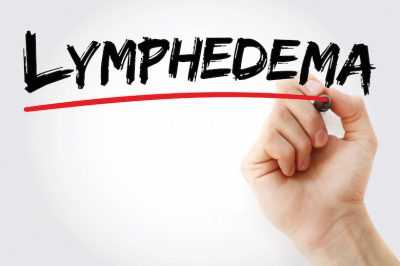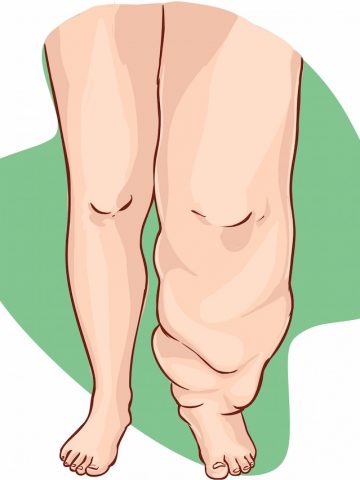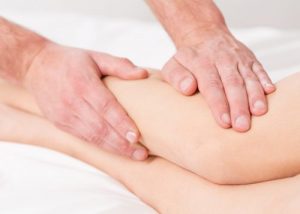Lymphedema Treatment
Albuquerque

Lymphedema
Lymphedema is a disease caused by damage to or malformation of the lymphatic system. (Learn about what causes swelling here.)
Often Lymphedema is brought on by surgery (usually including the removal of some or all lymph nodes from an area) and/or radiation for cancer treatment. Chemotherapy may also play a part in the causation of Lymphedema.
Lymphedema is a progressive disorder that can be greatly improved through the use of Electro-Lymphatic Therapy (ELT) and Manual Lymphatic Drainage (MLD – commonly called “lymphatic massage”). Lymphedema has no cure, but it can be well managed.
Is there a cure for lymphedema?
Currently, a handful of supermicro-surgeons around the world are working on lymphatic surgeries to reverse lymphedema, and hopefully they will have a viable solution in the near future that will work for most people and be covered by insurance. However, at this time it appears that most insurance companies consider these surgeries experimental. So, for now, the best strategy for most everyone with lymphedema is daily at-home management with regular visits to see a Certified Lymphedema Therapist for Manual Lymphatic Drainage (“lymphatic massage”).
If you have come here with the question, “How do I treat lymphedema?” This page is for you.
____________________________
FAQ
What Forms of Lymphedema Do You Treat?
I am a LANA Certified Lymphedema Therapist with a private practice in Albuquerque. I treat most forms of lymphedema, including breast cancer-related lymphedema, lower extremity lymphedema (legs), head and neck lymphedema, and truncal lymphedema (chest, abdomen, and back).
Do You Take Insurance?
Despite holding the highest credential available as a lymphedema therapist, I cannot take insurance due to insurance companies not recognizing her type of licensure as one that may bill for insurance coverage.
Are There Things You Cannot Treat?
There are a few limitations to what I can treat. I cannot work directly on wounds, but I can work around most of them. Ideally a person would arrive with wounds pre-bandaged. Lymphorrhea is a condition in which the skin weeps lymphatic fluid, and this is a condition that needs to be seen at a medical clinic because the skin is a large wound in this case. Likewise, my licensure does not cover treating genital lymphedema. However, I can provide instruction for self-care at home.
____________________________
Who Is Treating You?
If you have a diagnosis of Lymphedema, it is of the utmost importance that you seek out care from a Certified Lymphedema Therapist – NOT just a regular massage therapist who offers “lymphatic massage.” They are not comparable in their training.
Lymphedema is a complex, progressive disease that requires a tremendous amount of advanced knowledge to treat safely and effectively. This is especially true when you first begin to feel the heaviness, before it can be seen. Failure to see the right type of practitioner in the early stages of the disease means that you can miss out on critical management steps and education that can help keep your lymphedema controlled before permanent tissue changes set in.
What is the difference between a
massage therapist who offers lymphatic massage
and a Certified Lymphedema Therapist?
Certified Lymphedema Therapists (CLT’s) undergo an extremely rigorous training program that uniquely enables them to help reduce swollen limbs. The training that they receive is not offered in any other discipline – not to doctors, physical, or occupational therapists in their standard training. Those professions (along with the occasional massage therapist) must undergo a separate training program that teaches advanced lymphatic anatomy and physiology, manual lymphatic drainage, compression bandaging, garment fitting, etc.
By comparison, a licensed massage therapist (LMT) who offers “lymphatic massage,” but who is not also a lymphedema therapist may have only taken a couple of hours of (online only) training by a non-accredited school. They do not have the breadth or depth of knowledge, let alone skill and technique, for working with lymphedema. While these therapists may see people for “detox massage” and do no harm with improper technique, it can either cause more problems or cause a person to miss out on the narrow window of management of lymphedema in the early stages that can make a huge difference down the road in the size of the affected area of the body.
Lymphedema Mis-Education from Medical Providers
It has been my experience that many people who go to the doctor when their limbs begin to swell get put on Lasix (a diuretic) and get sent for basic (non-lymphedema-related) physical therapy. Sadly, diuretics do not help lymphedema (and may worsen it), but people are prescribed Lasix anyway because the medical community is ill-informed about lymphedema and treatment. (Note: Speak with your doctor before going off of a diuretic as they may have you on it for another reason such as swelling on the heart. Stopping it abruptly could be very dangerous in this case.)
Seeing a certified lymphedema therapist, whether in your Complete Decongestive Therapy sessions at a hospital-based clinic or a private therapist for management afterwards, is where you will get the best, most reliable, and up-to-date information.
Lymphedema Educational Info
If you have questions about Lymphedema – what causes it, a simple explanation in the form of an analogy, and the nitty gritty of the anatomy and physiology behind it, check out the
Lymphedema Educational Information page.
Lymphedema Resources
If you are looking to find more information about lymphedema such as other websites, books, or what kind of compression stockings to get, click on the Lymphedema Resources Page.
Lymphedema Treatment
Albuquerque

Advanced Lymphedema is treated by Complete Decongestive Therapy (CDT) of which
Manual Lymphatic Drainage (MLD) is a part.
Pain & Swelling Solutions offers treatment for Lymphedema of limbs, trunk, and breast.
Where I Come in as Your Therapist for Lymphedema Treatment
Manual Lymphatic Drainage (MLD) is a part. Usually for lymphedema where the limb has become very disproportionate compared to its normal size, the initial treatment is done in a clinic-based lymphedema treatment center. Most of these are clinics in major hospitals. Once the Complete Decongestive Therapy is done, people will come to see me for on-going care.
Electro-Lymphatic Drainage (ELT) or Manual Lymphatic Drainage, followed by compression bandaging is like a 1-2 punch for lymphedema.

How to Get Help for Lymphedema
FAQ: Do You Accept Insurance for Lymphedema Therapy?
As a massage therapist I am not allowed by the insurance companies to accept insurance for lymphedema therapy, so start with your local lymphedema clinic.
I am here when your insurance benefits are exhausted to continue your treatment. I can also help you while you are waiting to get in to see your insurance covered therapist. Insurance typically covers one 6-week round of Complete Decongestive Therapy, then you are on your own to pay for therapy after that.
I am part of your long-term management strategy for lymphedema. My price per hour is considerably less than a physical or occupational therapist who is also a lymphedema therapist, so therapy is more affordable. Also, I spend a lot of time educating you and introducing you to more management options so you can better self-manage at home between visits.
My office is comfortable and relaxing unlike a doctor’s office or clinic with bright lights and the smell of antiseptic everywhere, so it is a very different experience from what you get during your insurance covered sessions at a hospital.
Check out the Resources Page to find out what reputable books and organizations I recommend for further information.
Visit my Educational Info Page where you can find detailed information about Lymphedema and how it happens.
Dietary Modifications for Lymphedema
Did you know that what you eat can influence your Lymphedema?
In the following video, “Eating to Starve Lymphedema & Lipedema” presented at the Lymphatic Education & Research Network (LE&RN) Patient Symposium in 2019, Chuck Ehrlich, MS, MBA discusses how to make dietary modifications to help both Lymphedema and Lipedema.
Skin and Nail Care for Lymphedema
Skin and nail care is important to preserve the condition (integrity) of the skin and nails to help prevent infections.
A breakdown in the skin leads to a high likelihood of infection. It is for this reason that good personal hygiene is also maintained. In more advanced cases of lymphedema it may be difficult for a person to reach affected areas of their body. If this is the case, having a caregiver regularly clean and inspect difficult to reach areas such as creases, folds, or lower legs/feet.
Using a low-pH lotion before bandaging is helpful to help preserve the integrity of the skin.
Infections and Lymphedema
The protein-rich fluid that is stuck between the cells in lymphedema is the perfect medium to grow bacteria. Any time infection is suspected when you have lymphedema, it demands immediate attention as these infections can be dangerous. The most common infections with lymphedema are cellulitis and erysipelas. Erysipelas is more superficial than cellulitis, but they are both usually treated the same way. Knowing the difference is not important.
It is important to always clean any cuts or abrasions that you may get on an area of the body affected by lymphedema. Keep a very close eye on the area for signs of infection until it is fully healed. Note that infections can happen in lymphedema without an open wound.
What follows are general guidelines regarding infections and lymphedema. They are not a substitute for medical advice and are intended only to present common scenarios for general educational purposes. Always consult with a medical professional when making decisions if you suspect you have an infection.
Watch for these signs:
- Skin that feels warm or hot
- Redness or rash
- Fever of 100 degrees or more
Should the area become red and start to spread slowly, see your doctor or go to urgent care. You will likely be prescribed oral antibiotics. Once on antibiotics the symptoms should stop worsening after 2 days and begin to improve gradually after 3 days. Pain, itching, and heat will likely go away first, but the redness can persist and take significantly longer to go away. If your symptoms are still getting worse on the third day, check in with the doctor for a follow-up.
On the other hand, if the red area quickly becomes very hot, painful, and is rapidly spreading through the limb, go to the ER – especially if you have a fever. This may be a medical emergency that would require IV antibiotics and careful monitoring by medical professionals.
Prophylactic Antibiotics for Lymphedema
Some doctors advise taking antibiotics prophylactically if you get a cut and have a history of recurrent infections, but this is certainly not without its own risks. You should discuss the pros and cons of this with your doctor.
It is important to forego any lymphatic drainage if you have an active infection as it can worsen the infection and possibly cause a life-threatening crisis. Once the infection is well controlled with antibiotics – commonly 3-5 days after starting the antibiotics – it is generally safe to proceed with lymphatic work. Again, this timing is a general scenario. You should check with your doctor to ensure it is safe to resume lymphatic therapy.
Video on the Signs and Symptoms of Lymphedema and Infection





